CHEA Phal
Senior Research Fellow
Dr Chea Phal is currently the Senior Research Fellow at the Centre for Educational Research and Innovation. He has previously worked as a consultant for the World Bank, a research fellow at Kobe University, and an adjunct researcher at the Research Institute for Economics and Business Administration (RIEB), Japan. He holds a Master's and PhD in economics of education from the Graduate School of International Cooperation Studies, Kobe University, Japan. He has been actively involved in joint projects between UNESCO Bangkok and Kobe University, conducting various educational research projects in Cambodia. His research interests encompass economics of education, education finance, higher education, learning assessment, and field experiments. He has authored and co-authored numerous scientific papers, including those indexed in the Web of Science and Scopus databases.
Email : phalchea@cdri.org.kh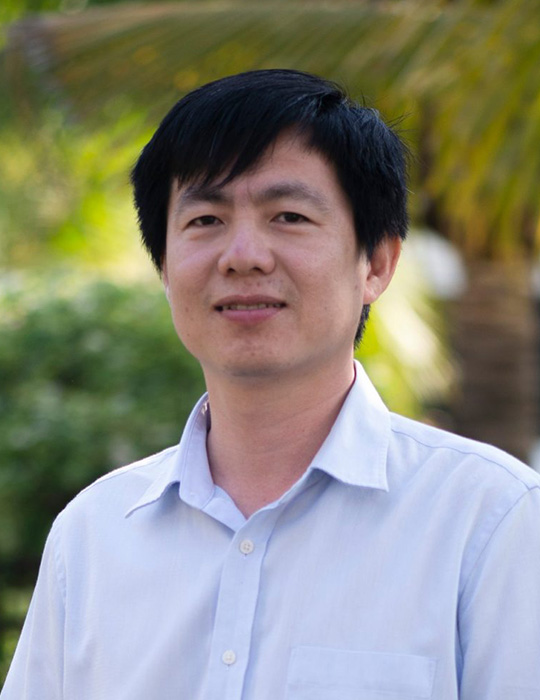
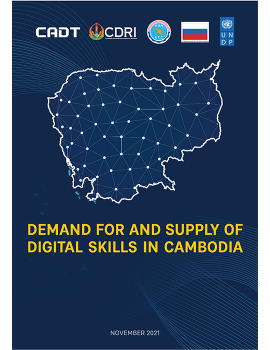
The study assesses current and future demand for and supply of digital and ICT skills and investigates the challenges firms of all sizes, universities, and TVET institutions face in preparing themselves and their students for digital technology adoption under the framework of the Fourth Industrial Revolution (4IR). A mixed-methods approach of quant...
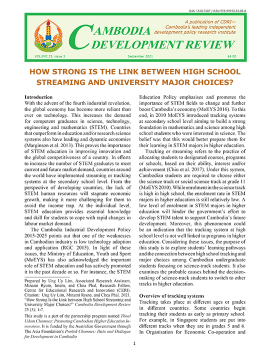
The purposes of this study are to explore learning pathways when students transit from high school to higher education among Cambodian students and examine the probable causes behind their decision to switch academic majors. The study found that about half of surveyed students switched their academic majors. Virtually all the switchers are science-...
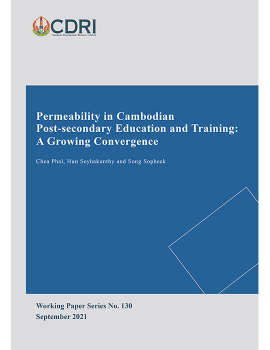
The distinction between vocational training and academic education can be traced back to different institutional structures in medieval Europe. However, owing to an increasing need for higher-level skills to respond to market demand, countries have resolved to establish flexible pathways for students on both tracks or systems to move or transfer ac...
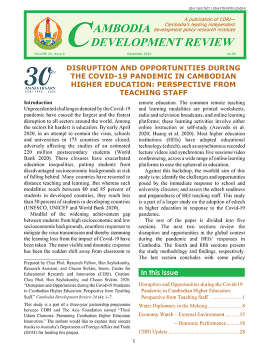
The twofold aim of this study is to: identify the challenges and opportunities posed by the immediate response to school and university closures; and assess the edtech readiness and preparedness of HEI teaching staff. The findings demonstrate that unstable internet connection and difficulty assessing student performance are the biggest obstacles im...
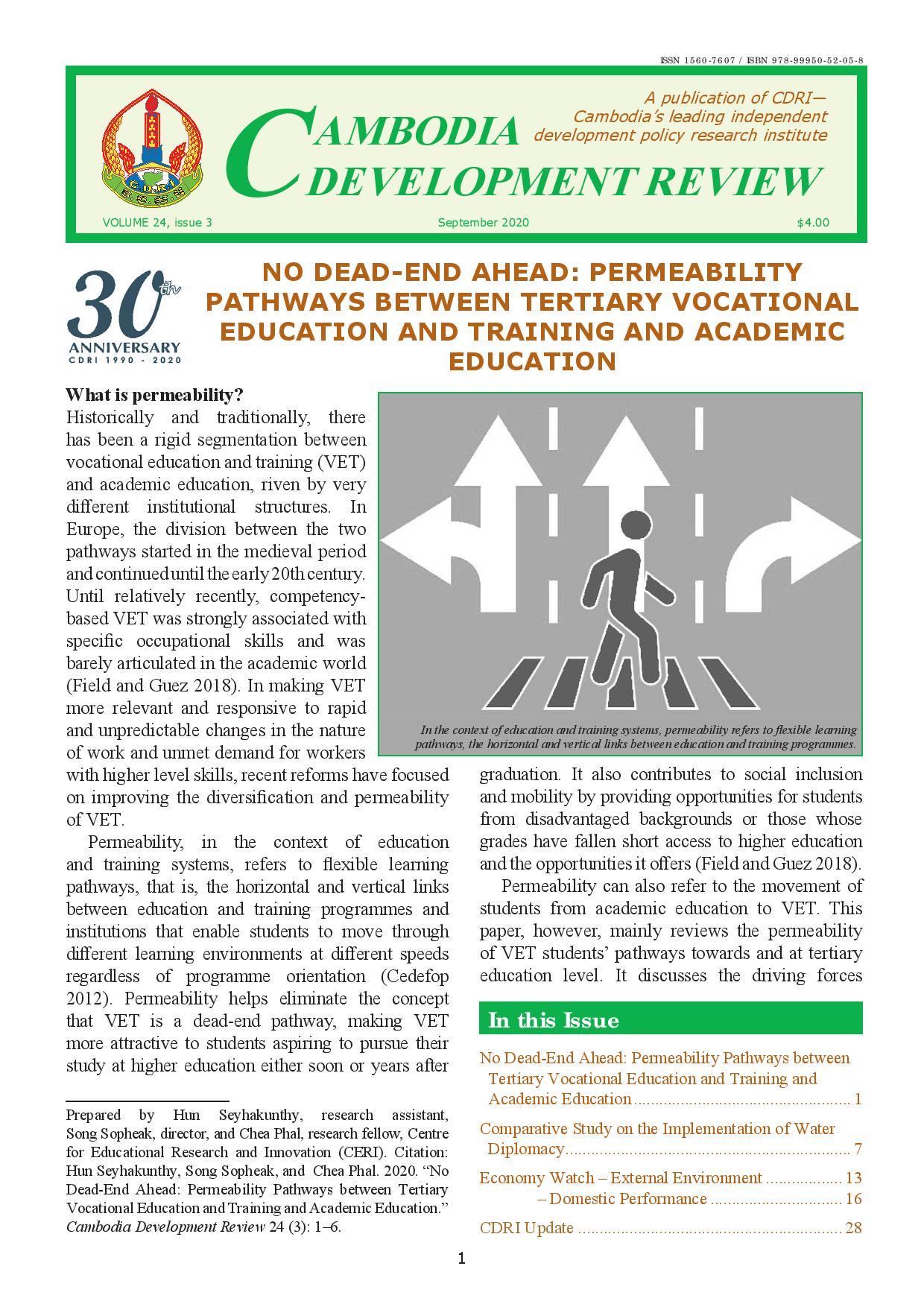
Permeability, in the context of education and training systems, refers to flexible learning pathways, that is, the horizontal and vertical links between education and training programmes and institutions that enable students to move through different learning environments at different speeds regardless of programme orientation. This study aims at d...
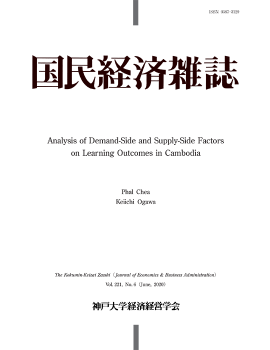
The study applies the Hierarchical Linear Modeling(HLM) approach using the international learning assessment survey, PISA for Development (PISA-D), to examine the effects of demand-side and supply-side factors associated with academic performance in Cambodia. Findings from the study suggest that students' characteristics and family background are g...
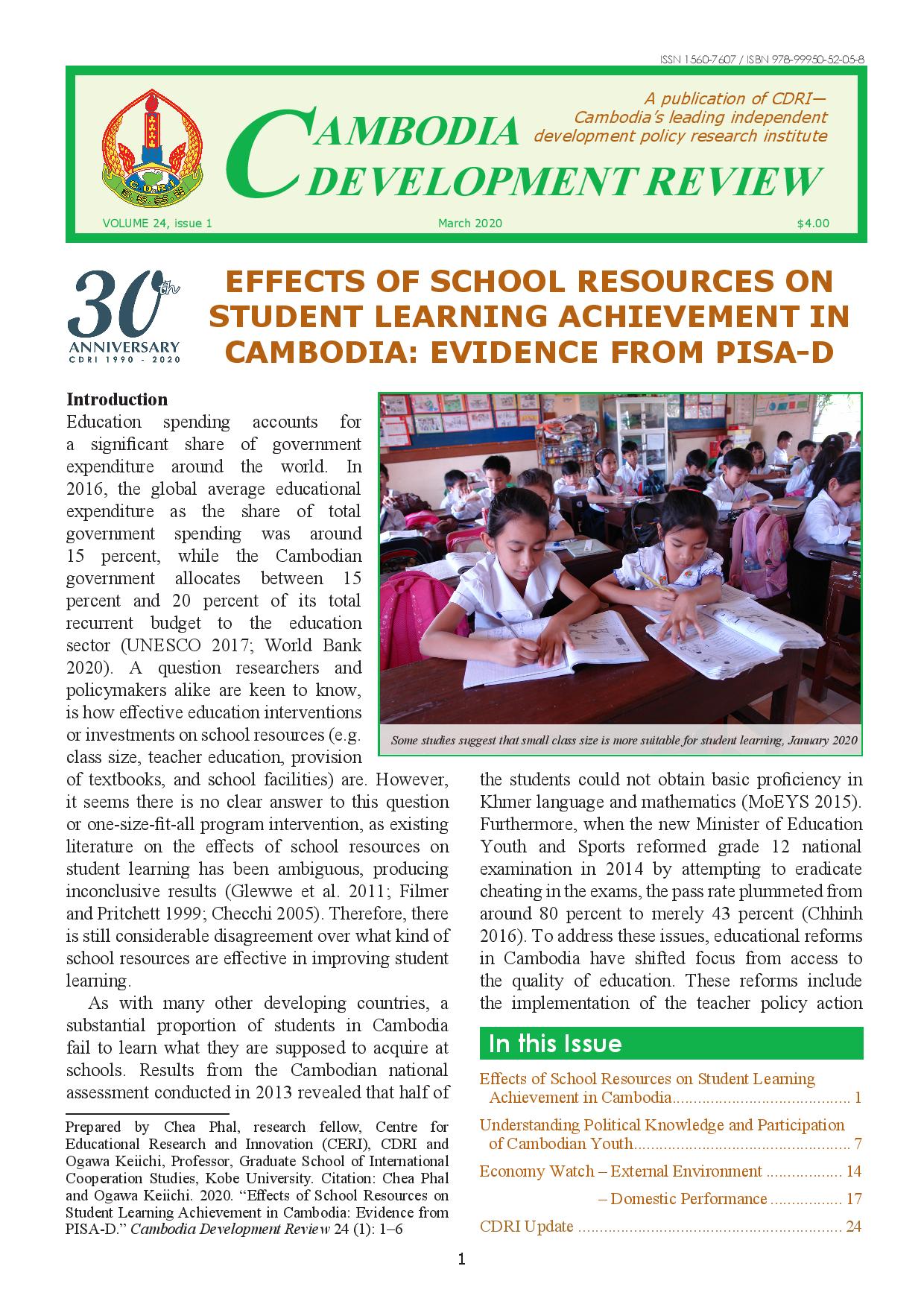
This study investigates the relationships between school resources and student learning achievements using large-scale Programme for International Student Assessment for Development (PISA-D) survey data, the first international student learning assessment Cambodia participated in 2017. It found the positive effects on school infrastructure on stude...
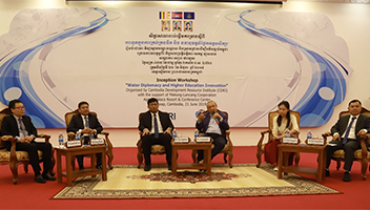
With a steady economic growth hovering between 7-8 percent over the past two decades, Cambodia achieved a lower-middle-income in 2015. Building on this progress, the government aspires to become an upper-middle-income country by 2030 and a high-income country by 2050. Several key issues need to be urgently addressed if Cambodia is to realise the a...
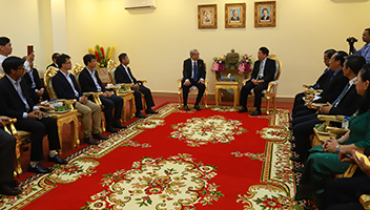
Cambodia has achieved strong growth in the past two decades, and the country has graduated to lower-middle-income status with a per capita income of about USD1,215 (2015). A feat that neighbouring Vietnam achieved in 2010 and Laos in 2011. Building on this achievement, Cambodia aspires to become an upper-middle-income country by 2030 and a high-inc...
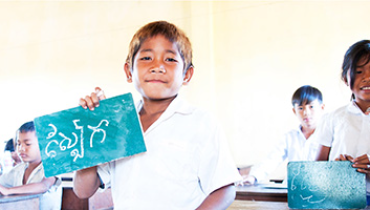
A five-year project called ‘Education Research for Effective Policy Reforms’ with a total funding of USD446,713 aims to produce independent, objective, high quality policy-relevant higher education research, and to maximise the accessibility of this knowledge to policymakers, influencers and stakeholders, and its policy impact. This project also wo...
